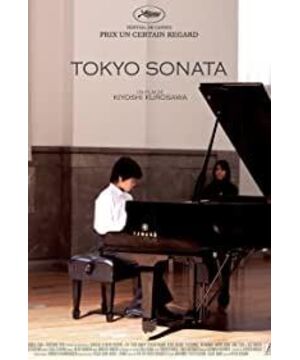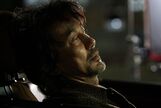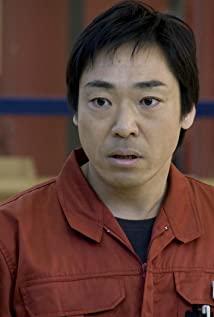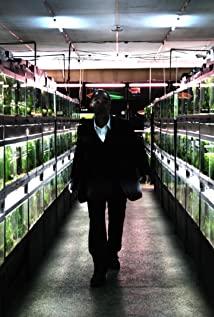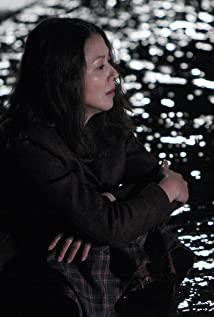Because a theme of the entire film is to show Japan's economic plight, and mentioning China one after another shows that the director believes that the plight has something to do with China's development. Presumably among ordinary Japanese, there is still a sense of being threatened by China, but they rarely march against China. Why do we always feel that we are victims when we steal people's jobs?
Back to movies. For the time being, I think that the film is a true representation of the current situation of Japanese society. A large number of professionals are unemployed and unable to find work for a long time. They are afraid of being discovered by their family members. They wander around all day long, and create the illusion that they are busy. I saw some netizens commented that they didn’t understand, didn’t they just lose a job? The family was doing pretty well, anyway, there are government relief and unemployment insurance, how can it be so miserable? What's wrong with the poor?
I can understand that unemployment brings not only a survival problem, but a crisis of dignity, especially for the male owner of a family, the meaning of life is to be the pillar and protect the women and children in the family. Without a job, it is equivalent to a loss of dignity. Besides, as an old Chinese saying goes, it is easy to turn from frugality into luxury, and it is difficult to change from luxury to frugality. I am used to being rich, but suddenly I have to live my life again, feeling precarious and unable to see the future. This feeling should be particularly uncomfortable.
The friend of the hero Sasaki who committed suicide by gas in the end, every time he appeared before, he appeared unconcerned and unhurried, as if he was in no hurry to lose his job for a few months. Why camouflage? Also to maintain a little bit of dignity.
Watching Qiangqiang yesterday, Hou Dejian talked about wars, saying that the reason why the previous wars were launched was because the living space of the people was too crowded. Countries that go to war are not because of how powerful they are, but rather because they are in trouble at home. He cited Japan as an example, saying that such a small country has to maintain such a large economic aggregate, the citizens are living very hard, and the living space is cramped, which has caused the general depression of the Japanese. As long as the economy is bad, the pressure will be more severe, forcing people to seek space or divert conflicts.
In "Tokyo Sonata", the depression brought about by the pressure of the Japanese is everywhere. Whether it is an unemployed male host, a housewife, a divorced piano teacher, or a thief who has fallen into depravity due to a failed entrepreneurial endeavor, they are all struggling in their lives, unable to find their way. What is more special is the eldest son in the film, who wants to join the US military, and this represents the escape of young people from the cramped domestic environment and the resistance to oppression.
There are comments that the film is out of line. The front is simply about the family turmoil after unemployment, which is very real, but the back is too dramatic and blurs the point. For example, after the heroine was kidnapped by a thief, she didn't think of running away, but calmly. Together with the thief, I went for a ride to the beach, where I kept expressing despair in my life. But what I like the most is precisely this part of the blurring of the point, which allows the film to move beyond the concrete reality of economic hardship to a representation of the fundamental predicament of life. Several paragraphs of the heroine's self-talk, such as "I really think this is all a dream, when I wake up, I'm actually a completely different person, and then I can start again", and the words she said while lying on the sofa at home The phrase "who can pull me" shows that her problem is not her husband's unemployment, but the suffocation of the environment. Originally, I thought that the heroine could only serve as a vase for buffering in the family. Unexpectedly, Koizumi Kyoko became more and more interesting, especially after being kidnapped. The director borrowed the mouth of the thief in the film and said to Koizumi: "You are really a god!"
I mentioned earlier that the eldest son went to the United States to join the army as a resistance to repression. In fact, when I think of Hou Dejian's words, we can think that the younger son learns The piano can also be used as a metaphor - Hou Dejian believes that to solve the crowded environment does not necessarily require expanding the land, the most effective way is actually to develop culture. For example, if you put on headphones and listen to music in a crowded room, you will immediately feel the space expands and you stretch out.
There is also an "important line" in the film: "We are like being trapped in a sinking ship, the lifeboats have been driven away, and the water has been submerged to the neck." Every adult in the film is struggling, But he couldn't find a way to save himself. Either he just wanted to die, or he continued to suppress himself to return to the family and society, or to throw away that little dignity. Fortunately, Sasaki in the film still has his own bottom line of dignity, that is, he can lie on the ground and wipe the floor and sweep the toilet, and the huge sum of money he picks up has to be returned in the end. And his two children, one outward and one inward, found directions he could not see.
View more about Tokyo Sonata reviews


